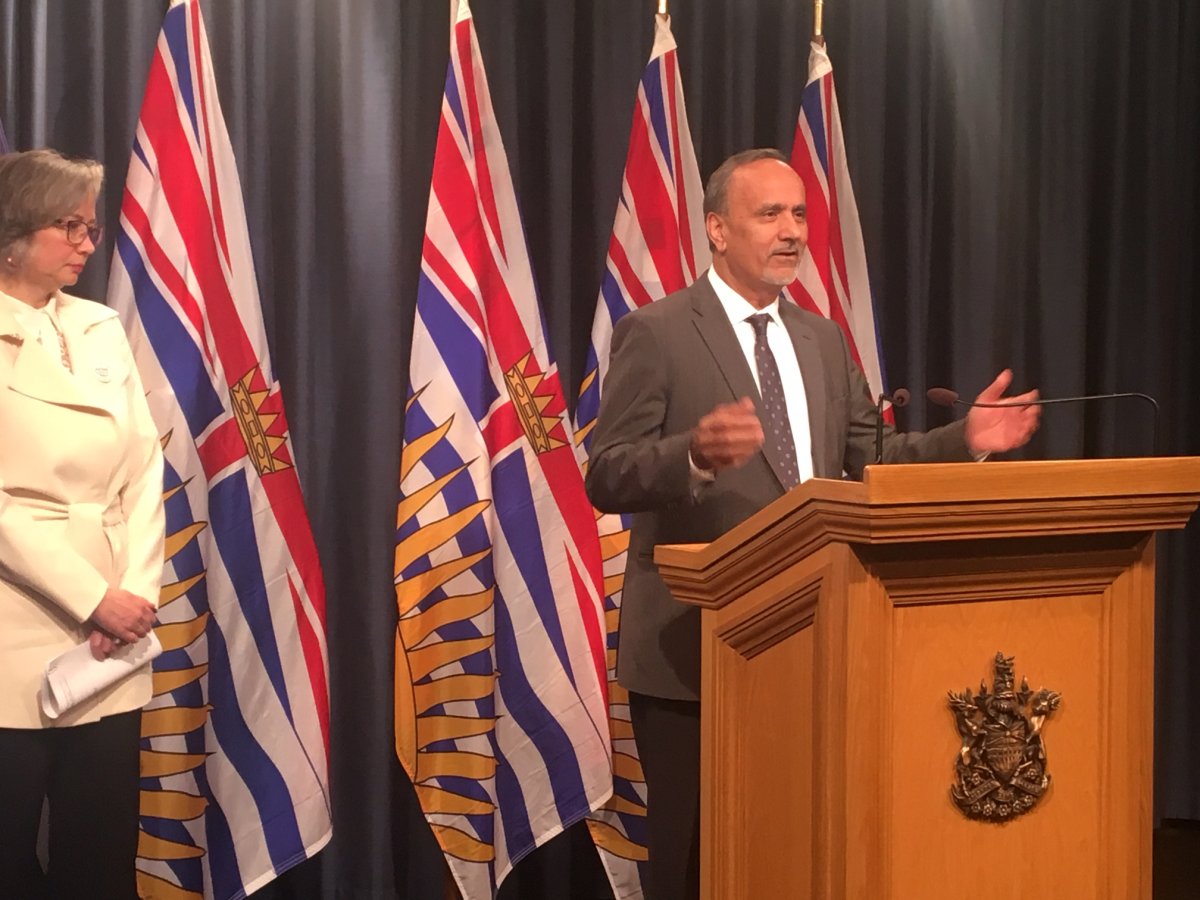The B.C. NDP has backed away from a commitment to remove the use of secret ballots for employees seeking to form unions.

Labour Minister Harry Bains introduced the first major changes to the province’s labour code since 1992 but excluded the secret ballot issue because it would have led to the B.C. Greens voting against the changes.
“Every worker in this country has the constitutional right to join a union without interference from their boss. Our friends in Greens have made it very clear they would not support card check,” Bains said.
“For many years, B.C.’s workers have seen employment rights and job security seriously threatened. And yet, the Labour Relations Code hasn’t had a substantive review since 1992. Between rapidly evolving workplace environments and a concerted attack on labour protections, too many hard-working people are struggling to get ahead or plan a future for themselves and their families.”
WATCH (April 24, 2017): NDP under attack for union financing

B.C. Building Trades executive director Tom Sigurdson says he is extremely disappointed that the secret ballot itself is not being eliminated.
He says B.C. workers who wish to join a union must first sign a union card and after a waiting period, during which the employer typically campaigns against unionization, must reiterate their vote through a secret ballot.
“Most jurisdictions in Canada have a card-based certification system, and so it’s disheartening that B.C. has decided to remain behind the times and continue with an Orwellian-styled double-vote process whose only goal is to limit employee choice,” Sigurdson said.
Sigurdson says he is supportive of most of the legislation, including the reduction of time between an application for union certification and a reconfirmation vote by secret ballot. The legislation shortens the requirements for the time between an application for union certification and an employee vote from 10 days to five business days.
The proposed legislation provides the Labour Relations Board with broader discretion to impose union certification when an employer is found to have unduly interfered with the certification process.
The provinces says the changes introduced on Tuesday support the recommendations put forward by an independent review panel hired by the NDP. The review included public consultation and engagement with labour organizations, businesses, industry, individual people and legal professionals.
“By bringing in changes to the Labour Relations Code, we will ensure better protection of collective bargaining rights for workers in British Columbia and promote more stable and harmonious labour relations for employers and unions,” Bains said.
If passed, the legislation will ensure workers will not see wages and benefits stripped away when contracts are re-tendered. The government is also putting into legislation a mandatory review of the Labour Relations Code at least every five years.
WATCH: Should teaching be considered an essential service?
“These amendments to the Labour Relations Code are critical to improving working and caring conditions in nursing homes and in our hospitals,” said Hospital Employees’ Union secretary-business manager Jennifer Whiteside.
“By expanding successorship protections to include the re-tendering of contracts by health authorities and care-home operators, front-line health-care workers will be more secure, while seniors and patients will benefit from more stability and less staff turnover.”
The province is also including food services into the contract for service. The example used was when, in 2014, Canucks Sports and Entertainment ended its food service contract with Aramark, the company that provides concession services at Rogers Arena.
- Alberta to overhaul municipal rules to include sweeping new powers, municipal political parties
- Grocery code: How Ottawa has tried to get Loblaw, Walmart on board
- Military judges don’t have divided loyalties, Canada’s top court rules
- Canada, U.S., U.K. lay additional sanctions on Iran over attack on Israel
Nearly 1,000 service staff at the home of the Vancouver Canucks were fired and given a chance to reapply under the new food service provider.
The new rules would not prevent staff from terminating contract employees but would require them to keep the collective agreement and employees.
“There was a loophole, in my view, that did not cover re-tendering and contract flipping. The new contract that comes in should take over the contractual obligations,” Bains said.
Compared to overhauls to the provincial labour code, these proposed changes are pretty small. The code was first introduced in 1973.
The legislation also proposes the removal of references to educational programs as “essential services.” The changes come in recognition of the 2015 Supreme Court of Canada ruling that the right to strike is constitutionally protected and that essential services are limited to a “clear and imminent threat to the life, personal safety or health of the whole or part of the population.”
The Labour Relations Board will continue to have the discretion to establish essential services in the education sector if a dispute poses a threat to the health, safety or welfare of the residents of B.C.




Comments